Key Takeaways
- AI in marketing uses machine learning and automation to streamline workflows, personalize content, and improve customer experiences.
- Common applications include content generation, audience segmentation, SEO optimization, and AI-powered chatbots.
- Tools like Jotform AI Agents offer no-code solutions to build customizable marketing chatbots for tasks like social media outreach, email campaigns, and survey collection.
- AI boosts productivity and creativity by generating content, analyzing data patterns, and offering actionable insights.
- Challenges such as data privacy, poor data quality, and overreliance on automation require careful oversight, transparency.
- Successful AI implementation involves human monitoring, clear customer communication, and continuous refinement.
Artificial intelligence (AI) is being used in everything from smartphones to manufacturing. In fact, 65% of companies use AI in their business as of 2024. AI can change the way your team approaches marketing forever — if you’re willing to take the leap.
AI in marketing can improve your customer experience, drive results, and relieve your team of costly menial tasks. Read on for our breakdown of the many uses, benefits, and even challenges of this growing technology to decide if AI marketing tools are right for you.
Build Your Custom AI Agent in Minutes
What is AI in marketing?
Artificial intelligence marketing is the use of AI tools such as machine learning and automation to streamline, improve, and facilitate key marketing strategies. This growing practice has become increasingly popular due to its wide-ranging applications, including personalizing content, improving customer experience, and reducing the impact of administrative tasks on marketing teams.
Introducing AI marketing tools into daily workflows allows teams to reduce their workload, boost productivity, and enhance results — as long as they are applied correctly.
Understanding how AI marketing tools work
Before you can effectively apply AI in marketing, you need to understand how these tools are capable of performing the tasks they do. Artificial intelligence learns by processing your data using algorithms to identify, understand, and perform tasks based on relationships and patterns it finds in the provided information.
Think of it this way: AI learns similarly to how we do. When you need to learn how to perform a new marketing task, you’re usually provided with the instructions necessary to do so. AI works the same way, except AI marketing tools are pre-programmed to know what they need to look for to do their job rather than starting from scratch. By providing these tools with your data, they can understand your specific needs and generate your desired outputs.
Machine learning
Just like us, AI also gets better at its job over time. As your AI tools become more familiar with what you want, how you operate, and the patterns in your data, it can create more desirable outcomes. This is called machine learning.
Machine learning allows AI to perform tasks that would otherwise require human intelligence, such as problem-solving or data analysis. Although machine learning isn’t the same as human intelligence, it can still help AI perform tasks that would otherwise be impossible for standard automations.
For example, machine learning in marketing can help your team comb over data and identify trends, noticing similar patterns to what a human analyst might, but in a fraction of the time.
Deep learning
Deep learning takes the power of machine learning to another level. Deep learning AI is designed to operate more like the critical thinking area of the human brain. It even relies on artificial neural networks. Popular tools like Siri, Cortana, and ChatGPT all use this technology.
Using deep learning AI marketing tools, your team can perform more advanced tasks easily, such as sentiment analysis, natural language processing, transcribing sound files, generating alt text for images, and more.
Benefits of AI in marketing
Now that you understand the basics of AI tools, the real question becomes: What’s in it for me? While the exact benefits your business could reap from AI will likely depend on your unique needs and application of these solutions, AI has several potential advantages:
- Creating personalized customer experiences through data analysis
- Streamlining marketing workflows to reduce inefficiencies
- Reducing the number of tasks required by your marketing team
- Facilitating the scaling and growth of your business without additional hiring
- Providing actionable insights to inform decision-making and forecasting
- Empowering marketing employees to create better materials
- Generating and analyzing content to reduce turnaround and improve results
These benefits allow your team to work smarter, not harder — producing improved marketing materials at a fraction of the effort. AI marketing tools can not only help your team drive results and efficiency, but also reduce the chances of burnout and employee turnover.
Common applications of AI in marketing
You can choose from many AI-driven marketing strategies to generate the unique benefits your team is seeking. Here are a few examples of how AI in marketing can assist your team in reaching their goals.
Content generation
One of the core uses of AI in marketing is to create quality content personalized to your target audience — quickly. Using AI marketing tools, your team can create a variety of materials, like the following:
- Blog posts
- Social media content
- Emails
- Surveys
- Product listings
The key to maximizing the value of AI content generation tools is mastering prompts, the commands you use to guide AI in its content generation process. Learning how to use prompts to your advantage will help refine your content generation capabilities.
Audience segmentation
AI can also help identify ideal customer profiles based on your buyer data. Through data analysis AI software, you can input your customer data and ask your solution to sort buyers based on specific criteria, like the following:
- Demographics
- Geography
- Personality traits
- Buying habits
- Interests
Your AI solution will then segment these users into specific data sets based on your set filters. With your audiences segmented and analyzed, your team can build more effectively targeted campaigns to increase engagement and leads.
Customer service chatbots
Chatbots have become one of the top uses for AI. Unlike traditional chatbots, AI can interact with customers similarly to human agents. Rather than simply offering canned responses, these AI solutions create dynamic, personalized experiences for your customers.
One such solution is Jotform AI Agents. Through Jotform, not only can you build and customize your own AI chatbot, but you can also integrate premade AI agents into your website based on your needs. These agents create a no-code-necessary conversational experience for your customers and come in a variety of pre-built personalities:
- General marketing AI agents
- Social media marketing AI agents
- Marketing survey AI agents
- Email marketing AI agents
You can train your AI agent using your customer data to ask questions and answer customer queries. Solutions like Jotform AI Agents make it easier than ever to collect information from your customers intuitively and efficiently.
Search engine optimization (SEO)
There are also AI marketing tools that can improve the rankings of your existing and future marketing content by analyzing and auditing for search engine optimization quality. These solutions can help you update your existing marketing content with relevant keywords and backlinks, as well as improve your content creation process moving forward.
Simply upload your content into an SEO-specialized AI tool and make updates based on its recommendations. You can also add an AI integration to your writing software to catch potential opportunities or mistakes in real time.
Challenges and considerations of AI marketing automation
While AI can be a revolutionary tool for your business, it’s still a new technology; your team must stay aware of the potential dangers and challenges that come with it.
Common challenges
As your team begins using AI in marketing, you will likely encounter issues. These issues, while common, can lead to legal, financial, and operational trouble if not addressed properly. Here are a few examples of potential scenarios you should do your best to avoid:
- Privacy concerns: To train and hone your AI’s results, you’ll need to provide it with a vast amount of information. In doing so, you may raise concerns among your customers about the security of their data and risk falling out of compliance with rules and regulations surrounding data privacy.
- Data quality: While providing your AI solution with data is essential to its operation, inaccurate or incomplete data will lead to poor results. Before you start feeding your AI system marketing data, make sure that data is of the highest quality.
- Lack of human touch: AI tools, while helpful, often lack the finesse of a human team member. Relying too heavily on AI tools to perform vital, complex tasks can cause more work for your team and impact your credibility among customers.
Tips to prevent potential pitfalls
While growing pains may be inevitable when implementing new technology, following these tips can set you up for success:
- Be transparent: Maintain open communication with your customers about how their data is being used, what data you are using, and why you are using it to foster ongoing trust with your customers.
- Use data ethically: Make sure you know how your AI solution uses your data as best you can. Avoid providing your AI system with any data that may be considered sensitive or unethical, or compromise your compliance.
- Monitor your system: Use your human team to monitor how well your system works. If you’re seeing lackluster performance, you may need to evaluate the data you’re inputting or the level of human oversight involved in your process.
Transform your marketing strategy with the help of AI
AI-driven marketing strategies can improve your team’s efficiency, results, and job satisfaction. So don’t be afraid to jump feet-first into the world of this revolutionary technology.
Solutions like Jotform AI Agents can reshape how you perform marketing tasks and elevate your customer experience. Research your options, find the solution that best fits your needs, and implement it carefully — keeping our tips for success in mind.
Photo by Mikael Blomkvist



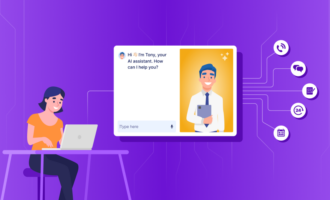
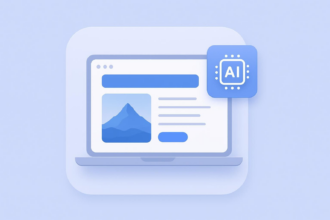
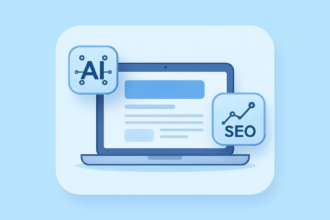
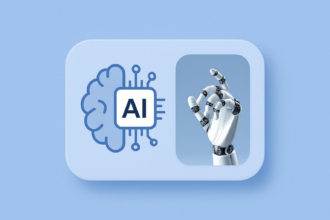
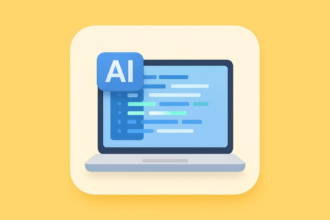



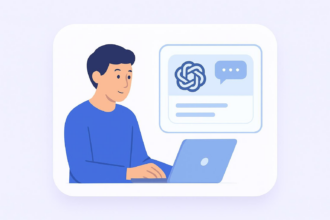








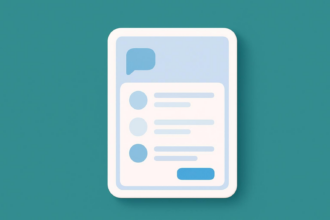




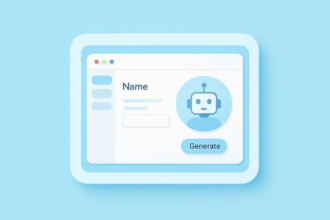


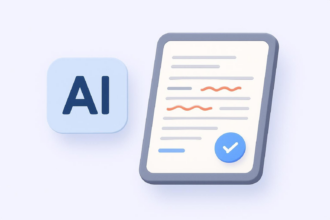



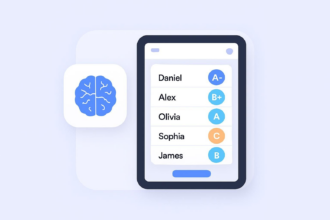































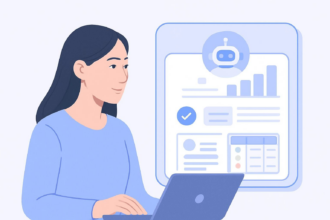
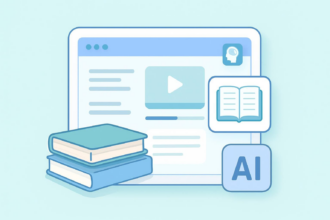

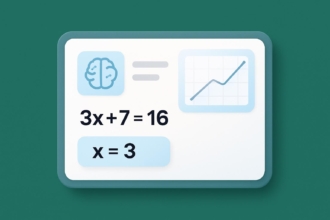
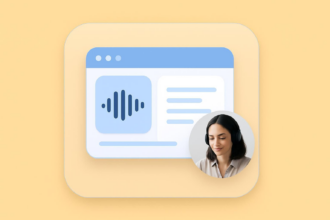

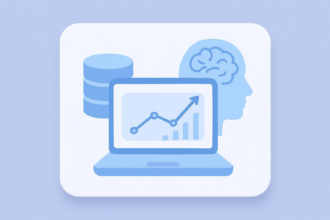










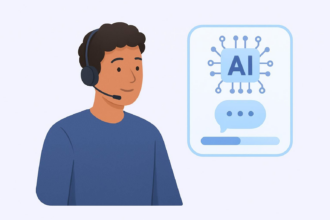
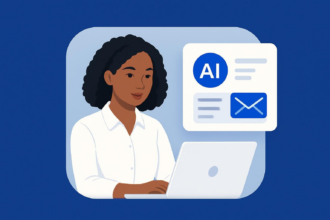


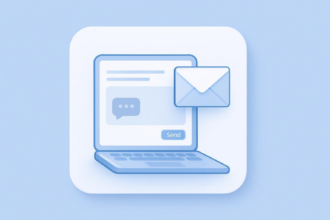



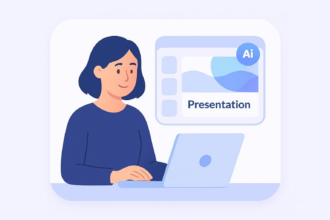


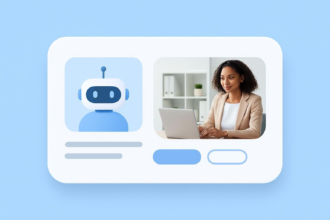










Send Comment: